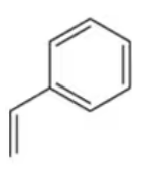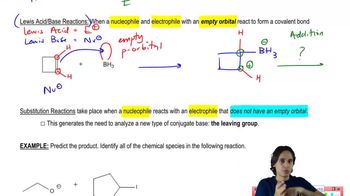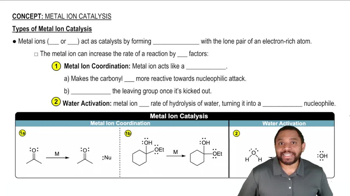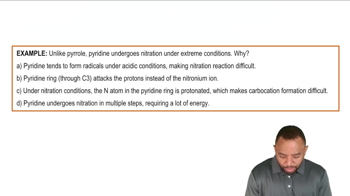The acid-catalyzed dehydration we learned in this chapter is reversible, as shown below.
(c) Which side of the reaction would be favored by running the reaction at low temperatures?

 Verified step by step guidance
Verified step by step guidance Verified video answer for a similar problem:
Verified video answer for a similar problem:



 6:32m
6:32mMaster General properties of acid-catalyzed hydration. with a bite sized video explanation from Johnny
Start learning